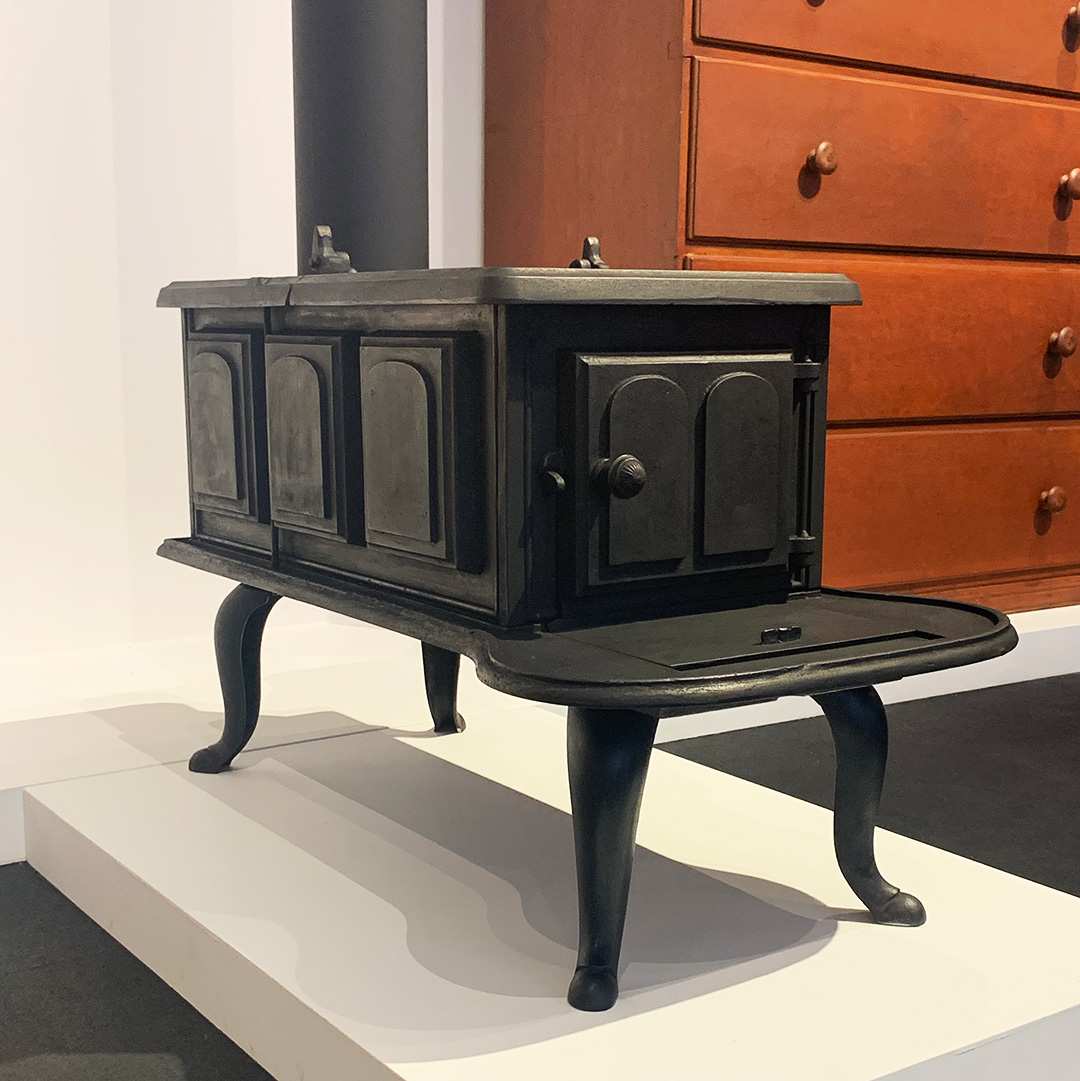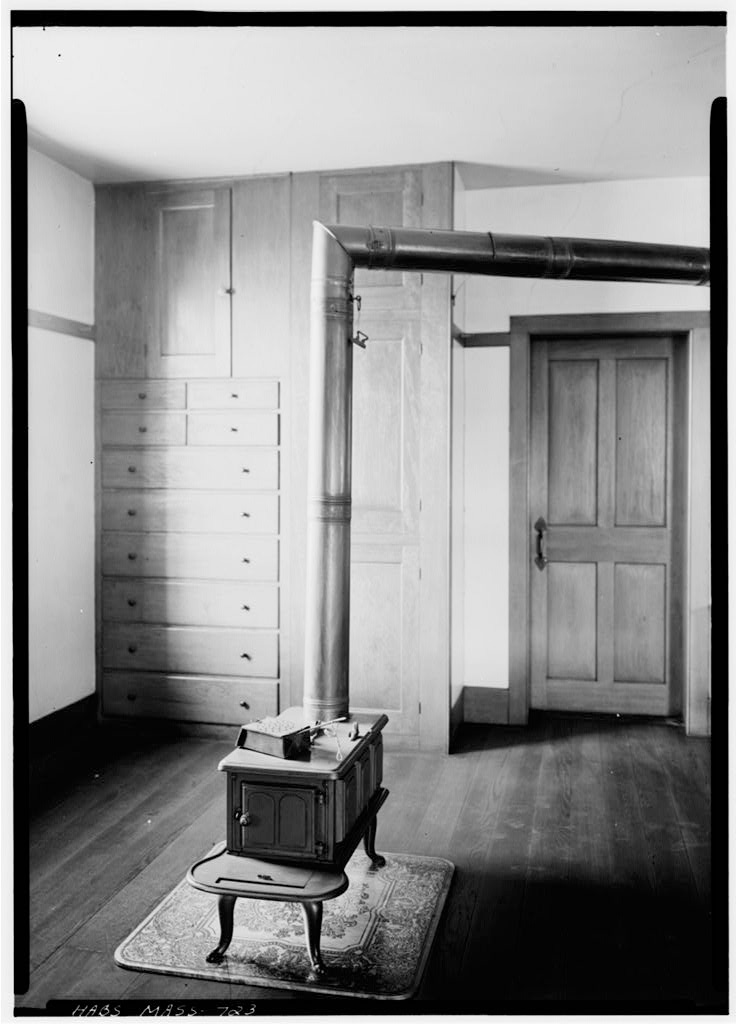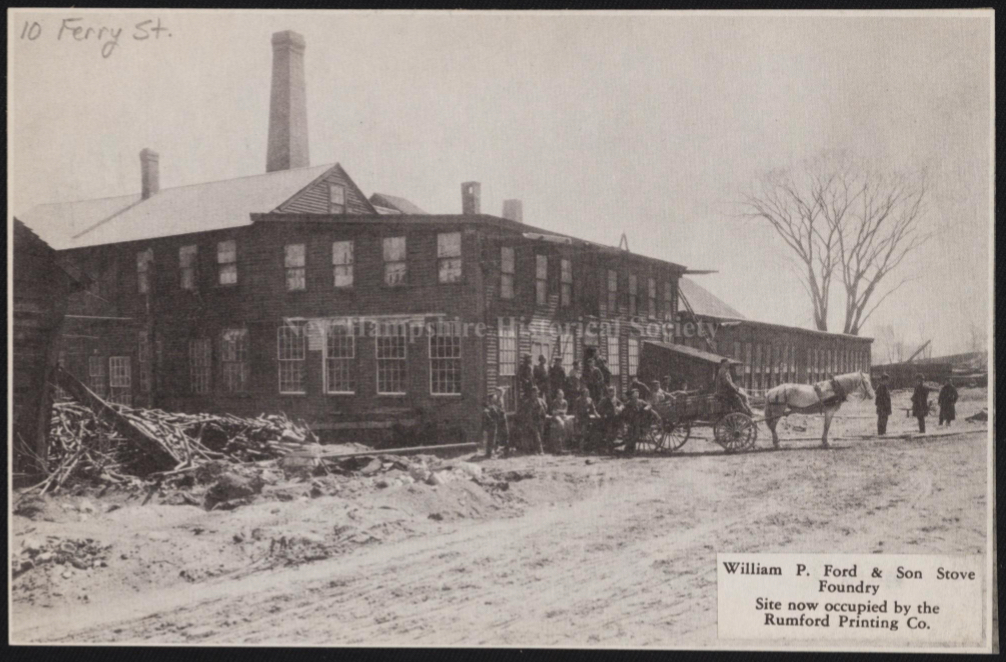Shaker Stove used by Brother Ricardo Belden
Wm. P. Ford & Co., Concord, NH | c. 1870
Cast and forged iron
21 ½” h. x 17 ½” w. x 32” d.
Provenance: Mary Allhusen, Canandaigua, NY
Shaker Stoves are models of practicality and efficiency. In the 1820s, the Shakers switched from fireplaces to woodstoves as the primary sources of heat in their dwellings and workshops. The specially designed and manufactured cast iron stoves were incredibly productive, generating an enormous amount of heat from a relatively small unit, and they were very safe, eliminating the possibility of errant sparks setting a room alight. The Shakers constructed networks of exhaust systems in the walls of their buildings so each room could contain a stove and smoke could be expelled through central chimneys. The stoves were modular—they moved within rooms with relative ease on pivoting pipes connecting the stove to the wall. In warmer months, stoves were disassembled and stored, freeing up additional space until the weather turned cold.
This Shaker Stove is a late-model version that shows the Victorian influence on the design. To our knowledge, the Shakers never made their own stoves—they were always produced by external manufacturers specializing in cast iron. To these foundries, the Shakers would supply wooden molds for component parts from which their stoves were made. The Shakers added hand-wrought elements such as iron tool holders, latches, and feet, but this varied by community and throughout the 19th century.
This Stove was created for the Shakers by the Wm. P. Ford & Co. foundry of Concord, New Hampshire, which specialized in the manufacture of “iron founders and jobbers, manufacturers of stoves, sinks and agricultural implements.” Located at 165 North Main Street in Concord, the business was operated continuously by the Ford family from 1850 until 1909 when it was sold to John Storrs, who formed a new partnership under the name, The Ford Foundry Company.
Comprised of a six-plate box with a front hinged door, this stove has cabriole legs, a hinged flap in the top plate, and a front hearth with a sliding hatch to control the draught. In addition to being used by the New Hampshire Bishopric, these stoves were brought to other Shaker communities, including the community in Hancock, Massachusetts.
According to the family who purchased the stove from the Shakers, this stove was used in the workshop of Brother Ricardo Belden (1868-1958), the last Shaker Brother at Hancock.
To inquire about this piece,
please contact us by phone:
914-763-8144
Or, you can reach us by email: jkr@jkrantiques.com




![Brother Ricardo Belden [front]](https://jkrantiques.com/wp-content/uploads/2022/11/Brother-Ricardo-Belden-front.jpg)
